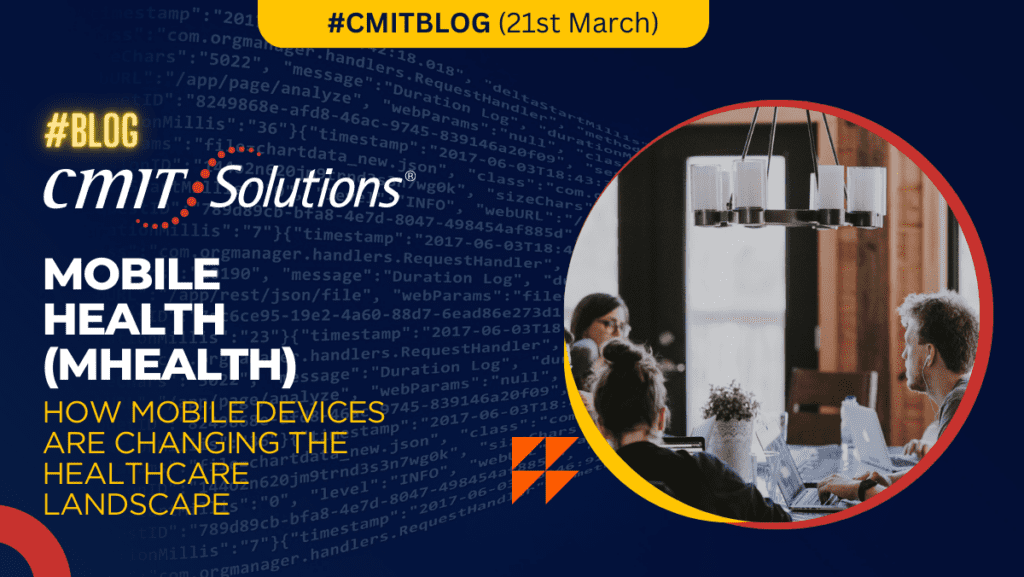Introduction to Healthcare Data Protection
In recent years, the healthcare industry has increasingly become a target for cyber attacks due to the vast amount of sensitive patient data it holds. Protecting this data is not only crucial for patient privacy but also for maintaining the integrity of healthcare systems. In this blog post, we will explore CMIT Tribeca’s comprehensive cybersecurity strategies designed specifically for healthcare organizations to safeguard patient data and ensure compliance with industry regulations.
Understanding the Importance of Cybersecurity in Healthcare
The healthcare sector is highly dependent on digital technologies for patient care, medical records management, and administrative functions. With the digitization of healthcare data, the importance of cybersecurity cannot be overstated. Cyber attacks targeting healthcare organizations can lead to disruptions in patient care, compromised medical records, and even endanger patient safety. CMIT Tribeca recognizes the critical role cybersecurity plays in maintaining the confidentiality, integrity, and availability of healthcare data.
Risks Associated with Healthcare Data Breaches
Healthcare data breaches pose significant risks to both patients and healthcare providers. Personal health information (PHI) is highly valuable to cybercriminals and can be used for identity theft, insurance fraud, and other malicious activities. Additionally, breaches can result in costly regulatory fines, damage to reputation, and legal liabilities for healthcare organizations. CMIT Tribeca understands the multifaceted risks associated with healthcare data breaches and works diligently to mitigate them through proactive cybersecurity measures.
Legal and Regulatory Landscape in Healthcare Data Protection
The healthcare industry is subject to a complex web of legal and regulatory requirements aimed at protecting patient privacy and data security. Regulations such as the Health Insurance Portability and Accountability Act (HIPAA) and the Health Information Technology for Economic and Clinical Health (HITECH) Act mandate strict standards for the handling and safeguarding of PHI. Non-compliance with these regulations can result in severe penalties and reputational damage. CMIT Tribeca stays abreast of the evolving legal and regulatory landscape in healthcare data protection to ensure that its cybersecurity strategies align with industry standards and requirements.
CMIT Tribeca’s Approach to Healthcare Cybersecurity
CMIT Tribeca takes a proactive approach to healthcare cybersecurity, recognizing that prevention is key to mitigating cyber risks. By implementing a combination of technical controls, administrative policies, and employee training programs, CMIT Tribeca helps healthcare organizations build robust defenses against cyber threats. From network security solutions to incident response planning, CMIT Tribeca offers a comprehensive suite of cybersecurity services tailored to the unique needs of healthcare clients.
Comprehensive Network Security Solutions for Healthcare Organizations
Network security is a cornerstone of healthcare cybersecurity, as it protects the digital infrastructure that stores and transmits patient data. CMIT Tribeca provides healthcare organizations with comprehensive network security solutions, including firewalls, intrusion detection systems, and secure remote access technologies. These measures help prevent unauthorized access, detect suspicious activity, and ensure the confidentiality and integrity of healthcare data.
Secure Data Management Practices in Healthcare Settings
Effective data management is essential for maintaining the security and privacy of healthcare information throughout its lifecycle. CMIT Tribeca assists healthcare organizations in implementing secure data management practices, such as data encryption, access controls, and data loss prevention mechanisms. By encrypting sensitive data both at rest and in transit, healthcare organizations can mitigate the risk of unauthorized access and data breaches.
Role-Based Access Controls and Identity Management
Role-based access controls (RBAC) and identity management play a crucial role in limiting access to sensitive healthcare data to authorized personnel only. CMIT Tribeca helps healthcare organizations implement RBAC policies and identity management solutions to ensure that employees have appropriate access permissions based on their roles and responsibilities. This reduces the risk of insider threats and unauthorized access to PHI.
Encryption Technologies for Healthcare Data Protection
Encryption is an essential tool for protecting healthcare data from unauthorized access or disclosure. CMIT Tribeca leverages encryption technologies to encrypt sensitive data both in transit and at rest, ensuring that patient information remains secure even if it is intercepted by unauthorized parties. By implementing strong encryption algorithms and key management practices, healthcare organizations can safeguard PHI from cyber threats.
Secure Communication Protocols for Healthcare Systems
Secure communication protocols are critical for protecting sensitive healthcare information transmitted between systems, devices, and stakeholders. CMIT Tribeca helps healthcare organizations implement secure communication protocols, such as Transport Layer Security (TLS) and Secure Sockets Layer (SSL), to encrypt data transmission and prevent interception or tampering. Secure communication protocols ensure the confidentiality and integrity of healthcare data exchanged within the organization and with external partners.
Regular Security Audits and Assessments in Healthcare
Regular security audits and assessments are essential for identifying vulnerabilities and weaknesses in healthcare organizations’ cybersecurity posture. CMIT Tribeca conducts comprehensive security audits and assessments to evaluate the effectiveness of existing security controls, identify potential risks, and recommend remediation measures. By proactively identifying and addressing security gaps, healthcare organizations can strengthen their defenses against cyber threats.
Employee Training and Awareness Programs in Healthcare Cybersecurity
Employees are often the weakest link in healthcare cybersecurity, as human error and negligence can inadvertently expose sensitive data to risk. CMIT Tribeca offers employee training and awareness programs to educate healthcare staff about cybersecurity best practices, recognize common threats such as phishing attacks, and understand their role in protecting patient information. By fostering a culture of security awareness, healthcare organizations can empower employees to become proactive defenders against cyber threats.
Incident Response and Disaster Recovery Planning for Healthcare Organizations
Despite best efforts to prevent cyber attacks, healthcare organizations must be prepared to respond swiftly and effectively in the event of a security incident. CMIT Tribeca assists healthcare organizations in developing comprehensive incident response and disaster recovery plans to minimize the impact of breaches and ensure business continuity. These plans outline predefined procedures for detecting, containing, and mitigating cyber threats, as well as recovering data and systems in the aftermath of an incident.
Advanced Threat Detection Systems for Healthcare Data Protection
Traditional security measures are no longer sufficient to defend against the sophisticated cyber threats facing healthcare organizations. CMIT Tribeca employs advanced threat detection systems, such as machine learning algorithms and behavior analytics, to identify and mitigate emerging threats in real-time. These systems analyze network traffic, user behavior, and endpoint activities to detect anomalous patterns indicative of potential security incidents, enabling proactive response and remediation.
Patch Management in Healthcare IT Environments
Unpatched software vulnerabilities pose a significant security risk for healthcare organizations, as cybercriminals often exploit these vulnerabilities to gain unauthorized access to systems and data. CMIT Tribeca implements robust patch management processes to ensure that software and systems are promptly patched and updated with the latest security patches and updates. By staying vigilant and proactive in patch management, healthcare organizations can mitigate the risk of exploitation and minimize their exposure to cyber threats.
Cloud Security Measures for Healthcare Data Storage and Processing
The adoption of cloud technology offers numerous benefits for healthcare organizations, including scalability, flexibility, and cost-effectiveness. However, cloud environments also introduce unique security challenges, such as data breaches, misconfigurations, and compliance risks. CMIT Tribeca provides cloud security measures tailored to the specific needs of healthcare organizations, including data encryption, access controls, and continuous monitoring. By implementing robust cloud security measures, healthcare organizations can leverage the benefits of cloud technology while safeguarding patient data from unauthorized access or disclosure.
Compliance with Healthcare Industry Regulations and Standards
Healthcare organizations are subject to a myriad of regulatory requirements governing the protection of patient privacy and data security. Regulations such as HIPAA, HITECH, and the General Data Protection Regulation (GDPR) impose strict standards for the handling and safeguarding of healthcare data. CMIT Tribeca helps healthcare organizations achieve compliance with these regulations by implementing security controls and safeguards aligned with industry standards and best practices. By adhering to regulatory requirements, healthcare organizations can mitigate the risk of non-compliance penalties and demonstrate their commitment to protecting patient confidentiality and privacy.
Collaboration with Third-party Healthcare Security Experts
Cybersecurity is a complex and ever-evolving field, requiring specialized expertise and resources to navigate effectively. CMIT Tribeca collaborates with third-party healthcare security experts and vendors to augment its cybersecurity capabilities and provide healthcare organizations with access to cutting-edge technologies and insights. By leveraging the collective expertise of industry partners, CMIT Tribeca ensures that healthcare organizations receive comprehensive cybersecurity solutions tailored to their unique needs and requirements.
Continuous Monitoring and Threat Intelligence Integration in Healthcare Cybersecurity
Effective cybersecurity requires continuous monitoring and threat intelligence integration to detect and respond to emerging threats in real-time. CMIT Tribeca employs advanced security monitoring tools and threat intelligence platforms to proactively identify and mitigate potential security incidents before they escalate. By leveraging real-time threat intelligence feeds and security analytics, CMIT Tribeca helps healthcare organizations stay ahead of cyber threats and maintain a strong security posture.
Conclusion: Ensuring Long-term Healthcare Data Protection with CMIT Tribeca
In conclusion, healthcare data protection is a critical priority for healthcare organizations in today’s digital age, given the increasing frequency and sophistication of cyber threats. CMIT Tribeca’s comprehensive cybersecurity strategies provide healthcare organizations with the necessary tools and expertise to safeguard patient data, maintain regulatory compliance, and mitigate cyber risks effectively. By implementing proactive security measures, fostering a culture of security awareness, and collaborating with industry partners, CMIT Tribeca ensures long-term healthcare data protection and peace of mind for its clients.




